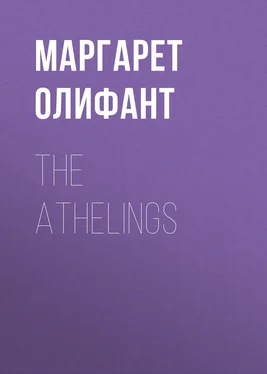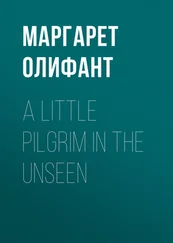Маргарет Олифант - The Athelings
Здесь есть возможность читать онлайн «Маргарет Олифант - The Athelings» — ознакомительный отрывок электронной книги совершенно бесплатно, а после прочтения отрывка купить полную версию. В некоторых случаях можно слушать аудио, скачать через торрент в формате fb2 и присутствует краткое содержание. Жанр: foreign_prose, literature_19, foreign_antique, на английском языке. Описание произведения, (предисловие) а так же отзывы посетителей доступны на портале библиотеки ЛибКат.
- Название:The Athelings
- Автор:
- Жанр:
- Год:неизвестен
- ISBN:нет данных
- Рейтинг книги:5 / 5. Голосов: 1
-
Избранное:Добавить в избранное
- Отзывы:
-
Ваша оценка:
- 100
- 1
- 2
- 3
- 4
- 5
The Athelings: краткое содержание, описание и аннотация
Предлагаем к чтению аннотацию, описание, краткое содержание или предисловие (зависит от того, что написал сам автор книги «The Athelings»). Если вы не нашли необходимую информацию о книге — напишите в комментариях, мы постараемся отыскать её.
The Athelings — читать онлайн ознакомительный отрывок
Ниже представлен текст книги, разбитый по страницам. Система сохранения места последней прочитанной страницы, позволяет с удобством читать онлайн бесплатно книгу «The Athelings», без необходимости каждый раз заново искать на чём Вы остановились. Поставьте закладку, и сможете в любой момент перейти на страницу, на которой закончили чтение.
Интервал:
Закладка:
It is Saturday—yes, Saturday afternoon, slowly darkening towards the twilight. Agnes and Marian at the window are eagerly looking out, Mamma glances over their bright heads with unmistakable impatience, Papa is palpably restless in his easy-chair. Here he comes on flying feet, that big messenger of fortune—crossing the whole breadth of Bellevue in two strides, with ever so many papers in his hands. “Oh, I wonder what they will say!” cries Marian, clasping her pretty fingers. Agnes, too breathless to speak, makes neither guess nor answer—and here he comes!
It is half dark, and scarcely possible to read these momentous papers. The young author presses close to the window with the uncut Athenæum . There is Papa, half-risen from his chair; there is Mamma anxiously contemplating her daughter’s face; there is Marian, reading over her shoulder; and Charlie stands with his hat on in the shade, holding fast in his hand the other papers. “One at a time!” says Charlie. He knows what they are, the grim young ogre, but he will not say a word.
And Agnes begins to read aloud—reads a sentence or two, suddenly stops, laughs hurriedly. “Oh, I cannot read that—somebody else take it,” cried Agnes, running a rapid eye down the page; her cheeks are tingling, her eyes overflowing, her heart beating so loud that she does not hear her own voice. And now it is Marian who presses close to the window and reads aloud. Well! after all, it is not a very astonishing paragraph; it is extremely condescending, and full of the kindest patronage; recognises many beauties—a great deal of talent; and flatteringly promises the young author that by-and-by she will do very well. The reading is received with delight and disappointment. Mrs Atheling is not quite pleased that the reviewer refuses entire perfection to Hope Hazlewood , but by-and-by even the good mother is reconciled. Who could the critic be?—innocent critic, witting nothing of the tumult of kindly and grateful feelings raised towards him in a moment! Mrs Atheling cannot help setting it down certainly that he must be some unknown friend.
The others come upon a cooled enthusiasm—nobody feels that they have said the first good word. Into the middle of this reading Susan suddenly interposes herself and the candles. What tell-tales these lights are! Papa and Mamma, both of them, look mighty dazzled and unsteady about the eyes, and Agnes’s cheeks are burning crimson-deep, and she scarcely likes to look at any one. She is half ashamed in her innocence—half as much ashamed as if they had been love-letters detected and read aloud.
And then after a while they come to a grave pause, and look at each other. “I suppose, mamma, it is sure to succeed now,” says Agnes, very timidly, shading her face with her hand, and glancing up under its cover; and Papa, with his voice somewhat shaken, says solemnly, “Children, Agnes’s fortune has come to-night.”
For it was so out of the way—so uncommon and unexpected a fortune, to their apprehension, that the father and the mother looked on with wonder and amazement, as if at something coming down, without any human interposition, clear out of the hand of Providence, and from the treasures of heaven.
Upon the Monday morning following, Mr Atheling had another letter. It was a time of great events, and the family audience were interested even about this. Papa looked startled and affected, and read it without saying a word; then it was handed to Mamma: but Mrs Atheling, more demonstrative, ran over it with a constant stream of comment and exclamation, and at last read the whole epistle aloud. It ran thus:—
“Dear Sir,—Being intrusted by your Aunt, Miss Bridget Atheling, with the custody of her will, drawn up about a month before her death, I have now to communicate to you, with much pleasure, the particulars of the same. The will was read by me, upon the day of the funeral, in presence of the Rev. Lionel Rivers, rector of the parish; Dr Marsh, Miss Bridget’s medical attendant; and Mrs Hardwicke, her niece. You are of course aware that your aunt’s annuity died with her. Her property consisted of a thousand pounds in the Three per Cents, a small cottage in the village of Winterbourne, three acres of land in the hundred of Badgeley, and the Old Wood Lodge.
“Miss Bridget has bequeathed her personal property, all except the two last items, to Mrs Susannah Hardwicke, her niece—the Old Wood Lodge and the piece of land she bequeaths to you, William Atheling, being part, as she says, ‘of the original property of the family.’ She leaves it to you ‘as a token that she had now discovered the falseness of the accusations made to her, twenty years ago, against you, and desires you to keep and to hold it, whatever attempts may be made to dislodge you, and whatever it may cost.’ A copy of the will, pursuant to her own directions, will be forwarded to you in a few days.
“As an old acquaintance, I gladly congratulate you upon this legacy; but I am obliged to tell you, as a friend, that the property is not of that value which could have been desired. The land, which is of inferior quality, is let for fifteen shillings an acre, and the house, I am sorry to say, is not in very good condition, is very unlikely to find a tenant, and would cost half as much as it is worth to put it in tolerable repair—besides which, it stands directly in the way of the Hall, and was, as I understand, a gift to Miss Bridget only, with power, on the part of the Winterbourne family, to reclaim after her death. Under these circumstances, I doubt if you will be allowed to retain possession; notwithstanding, I call your attention to the emphatic words of my late respected client, to which you will doubtless give their due weight.—I am, dear sir, faithfully yours,
“Fred. R. Lewis, Attorney .”“And what shall we do? If we were only able to keep it, William—such a thing for the children!” cried Mrs Atheling, scarcely pausing to take breath. “To think that the Old Wood Lodge should be really ours—how strange it is! But, William, who could possibly have made false accusations against you ?”
“Only one man,” said Mr Atheling, significantly. The girls listened with interest and astonishment. “Only one man.”
“No, no, my dear—no, it could not be–,” cried his wife: “you must not think so, William—it is quite impossible. Poor Aunt Bridget! and so she found out the truth at last.”
“It is easy to talk,” said the head of the house, looking over his letter; “very easy to leave a bequest like this, which can bring nothing but difficulty and trouble. How am I ‘to keep and to hold it, at whatever cost?’ The old lady must have been crazy to think of such a thing: she had much better have given it to my Lord at once without making any noise about it; for what is the use of bringing a quarrel upon me?”
“But, papa, it is the old family property,” said Agnes, eagerly.
“My dear child, you know nothing about it,” said Papa. “Do you think I am able to begin a lawsuit on behalf of the old family property? How were we to repair this tumble-down old house, if it had been ours on the securest holding? but to go to law about it, and it ready to crumble over our ears, is rather too much for the credit of the family. No, no; nonsense, children; you must not think of it for a moment; and you, Mary, surely you must see what folly it is.”
But Mamma would not see any folly in the matter; her feminine spirit was roused, and her maternal pride. “You may depend upon it, Aunt Bridget had some motive,” said Mrs Atheling, with a little excitement, “and real property, William, would be such a great thing for the children. Money might be lost or spent; but property—land and a house. My dear, you ought to consider how important it is for the children’s sake.”
Читать дальшеИнтервал:
Закладка:
Похожие книги на «The Athelings»
Представляем Вашему вниманию похожие книги на «The Athelings» списком для выбора. Мы отобрали схожую по названию и смыслу литературу в надежде предоставить читателям больше вариантов отыскать новые, интересные, ещё непрочитанные произведения.
Обсуждение, отзывы о книге «The Athelings» и просто собственные мнения читателей. Оставьте ваши комментарии, напишите, что Вы думаете о произведении, его смысле или главных героях. Укажите что конкретно понравилось, а что нет, и почему Вы так считаете.












